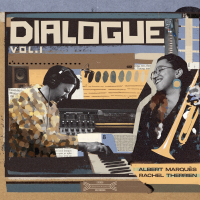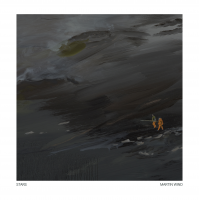Home » Jazz Articles » Album Review » Antonio Adolfo: Bossa 65
Antonio Adolfo: Bossa 65
In 2017, Adolfo sidestepped with Hybrido: From Rio To Wayne Shorter (AAM), an inventive disc which featured interpretations of eight Wayne Shorter tunes (check "Speak No Evil" on the YouTube clip below). He returned to straightforward Brazilian curation in 2017 with BruMa: Celebrating Milton Nascimento, followed in 2021 by Jobim Forever (both AAM).
Bossa 65 is named to mark what in 2023 Adolfo identifies as the 65th anniversary of bossa. That would be 1958, the year Joao Gilberto took the music into the Brazilian mainstream with Antonio Carlos Jobim's "Chega De Saudade." On the album, Adolfo showcases the work of first-wave bossa composers Carlos Lyra and Roberto Menescal. There are five tunes by Lyra and five by Menescal, including Menescal's "O Barquinho," which since it was first recorded in 1960 has probably generated almost as many cover versions as Jobim's "The Girl From Ipanema."
Adolfo's band, a nonet, is much the same as the ones on Celebrating Milton Nascimento and Jobim Forever. The four horns include trombonist Rafael Rocha. Ethnomusicology has yet to provide an explanation as to why the trombone has played a central role in bossa practically from day one. One might imagine the instrument to be ill-suited to bossa's gentle, chilled-out vibe, but in the hands of Brazilian players it has blended in effortlessly, altogether more like Stan Getz's occasional colleague, valve trombonist Bob Brookmeyer than New Orleans tailgate.
Did the embryonic bossa musicians hanging out in Copacabana apartments and jazz bars in the mid 1950s hear Getz's 1955 Norgran LP At The Shrine featuring Brookmeyer? It seems likely but we may never know for sure. Or is the 'bone simply a hangover from marching samba bands? Or none of the above? Anyway, significantly, the first horn solo on Bossa 65, a couple of minutes into the opening track, is from Rocha. You may already have noted the somewhat rougher-textured trombone on the aforementioned "Speak No Evil," on which Serginho Do Trombone takes the first solo.
Track Listing
Coisa Mais Linda; Samba Do Carioca; Bye Bye Brasil; O Barquinho; Maria Moita; Tete; Marcha Da Quarta-Feira De Cinzas; Rio; Nos E O Mar; Sabe Voce.
Personnel
Antonio Adolfo
pianoDanilo Sinna
saxophone, altoMarcello Martins
saxophone, tenorJesse Sadoc
trumpetRafael Rocha
tromboneJorge Helder
bass, acousticRafael Barata
drumsDada Costa
percussionLula Galvão
guitarAdditional Instrumentation
Danilo Sinna: alto saxophone; Marcello Martins: tenor saxophone, flute (7); Jesse Sadoc: trumpet, flugelhorn (9, 10); Rafael Rocha: trombone; Jorge Helder: double bass; Rafael Barata: drums, percussion (2-5, 8); Dada Costa: percussion (2, 5, 7, 8); Lula Galvao: guitar.
Album information
Title: Bossa 65 | Year Released: 2023 | Record Label: AAM Music
Tags
PREVIOUS / NEXT
Antonio Adolfo Concerts
Support All About Jazz
 All About Jazz has been a pillar of jazz since 1995, championing it as an art form and, more importantly, supporting the musicians who make it. Our enduring commitment has made "AAJ" one of the most culturally important websites of its kind, read by hundreds of thousands of fans, musicians and industry figures every month.
All About Jazz has been a pillar of jazz since 1995, championing it as an art form and, more importantly, supporting the musicians who make it. Our enduring commitment has made "AAJ" one of the most culturally important websites of its kind, read by hundreds of thousands of fans, musicians and industry figures every month.
























